Best offset guitars 2026: slanted-waist wonders from Fender, G&L, Duesenberg, Epiphone and more
We dive into the wondrous world of offset guitars – from surf-rockers to shoegaze noise machines – to bring you the top picks on the market today
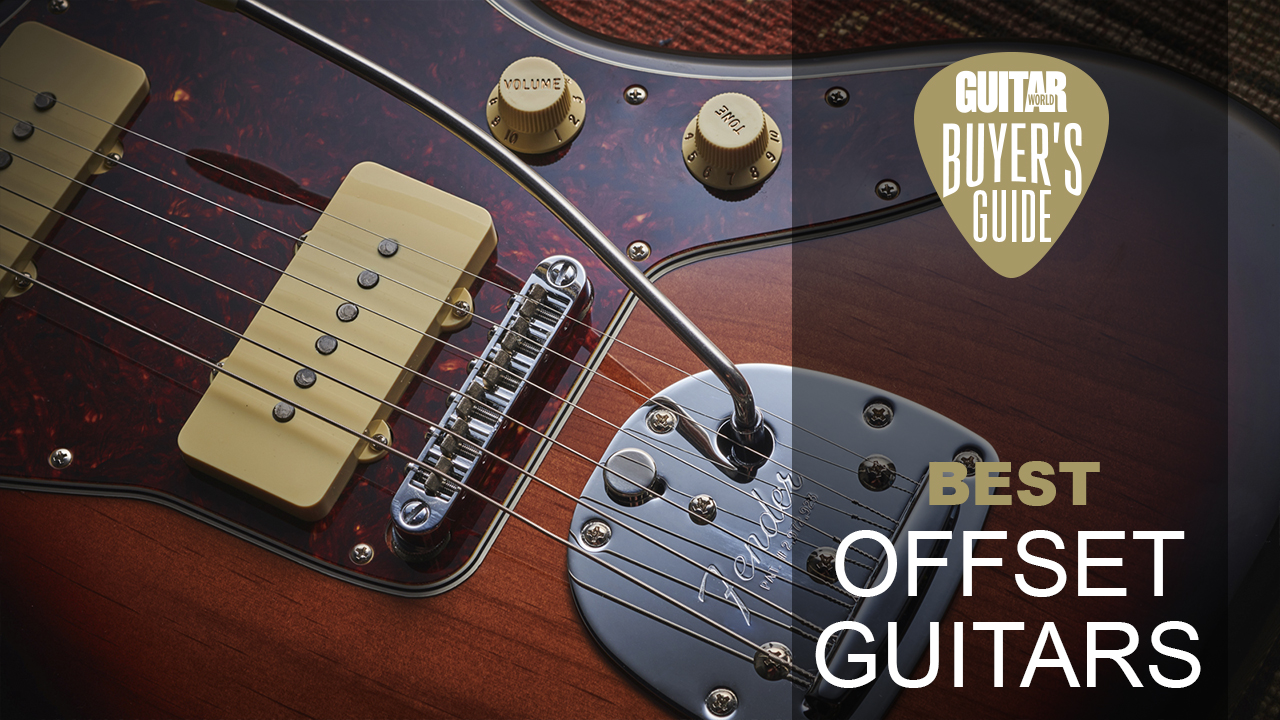
For some players, the thought of conforming to the norm simply isn't an option. Luckily, there is an entire subculture of guitars out there, ready-made for breaking the mold – the offset! Now, creating a guide to the best offset guitars is quite a daunting task. Not only do these lopsided guitars have a devoted following, but the term offset is so broad it can be used to describe everything from the classic Fender designs of the late '50s and early '60s to the futuristic Gibson Firebird and pretty much anything else with a crooked waistline.
Although Fender originally designed the asymmetric silhouette with jazz guitarists in mind, offset guitars quickly became the contrarian’s choice. Players looking for an alternative to the Telecaster or Les Paul gravitated toward quirky designs like the Jazzmaster, Jaguar and Firebird – guitars that have since become symbols of counterculture and musical outcasts.
So, do the sleek contours and bold look of these misaligned six-strings appeal to you? Well, luckily, we have put together this handy guide to the best offset guitars available from an array of brands and budgets. If you have any immediate questions, we have a handy FAQ section at the bottom of the article. Let's dive in.
Our top picks
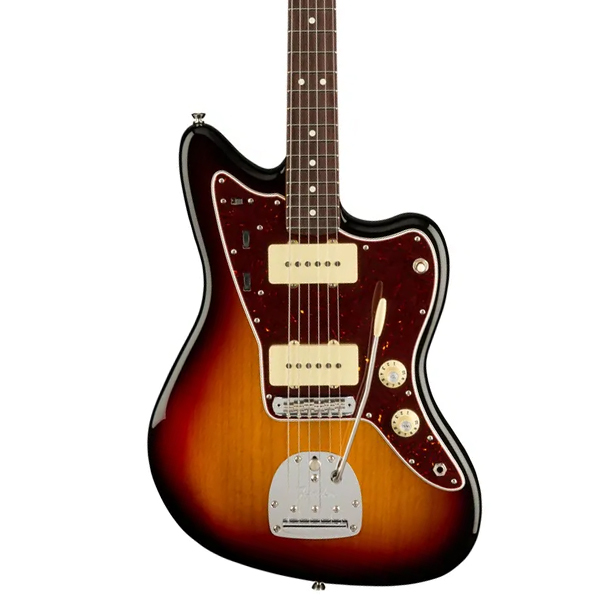
If Fender is the reigning king of the offset world, the Jazzmaster is the jewel in their crown, and for our money, the new Fender American Pro II Jazzmaster is the best they've created in a very long time. The Pro II takes a modern look at the late 50s classic, updating the pickups, neck profile, and bridge.
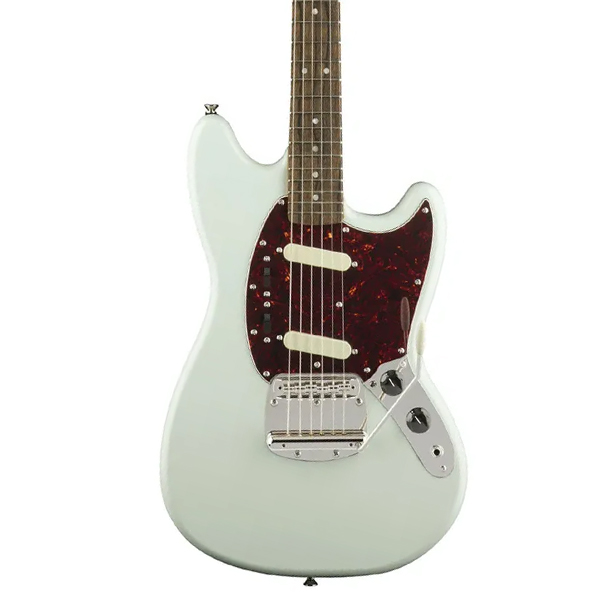
For the budget-conscious, we have to recommend the Squier Classic Vibe 60s Mustang. But, don't be fooled by the wallet-friendly price tag. This guitar most certainly punches above its weight. The retro-inspired Mustang delivers the bright tone and elastic feel this short-scale guitar is famous for, and all at an unbelievably affordable price.
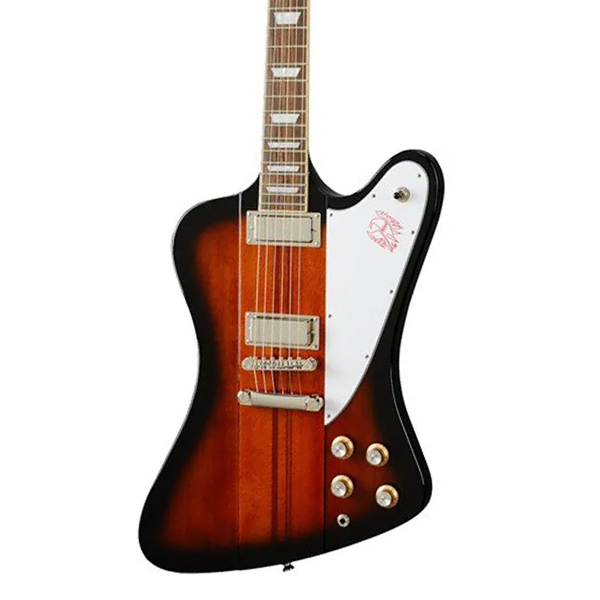
In a last-ditch effort to keep up with Fender in the early ‘60s, Gibson commissioned Ray Dietrich to take what he had learned from designing cars and apply it to the world of guitars. The result was a striking guitar of flowing lines and smooth curves, with a fully neck-through construction.
Best overall
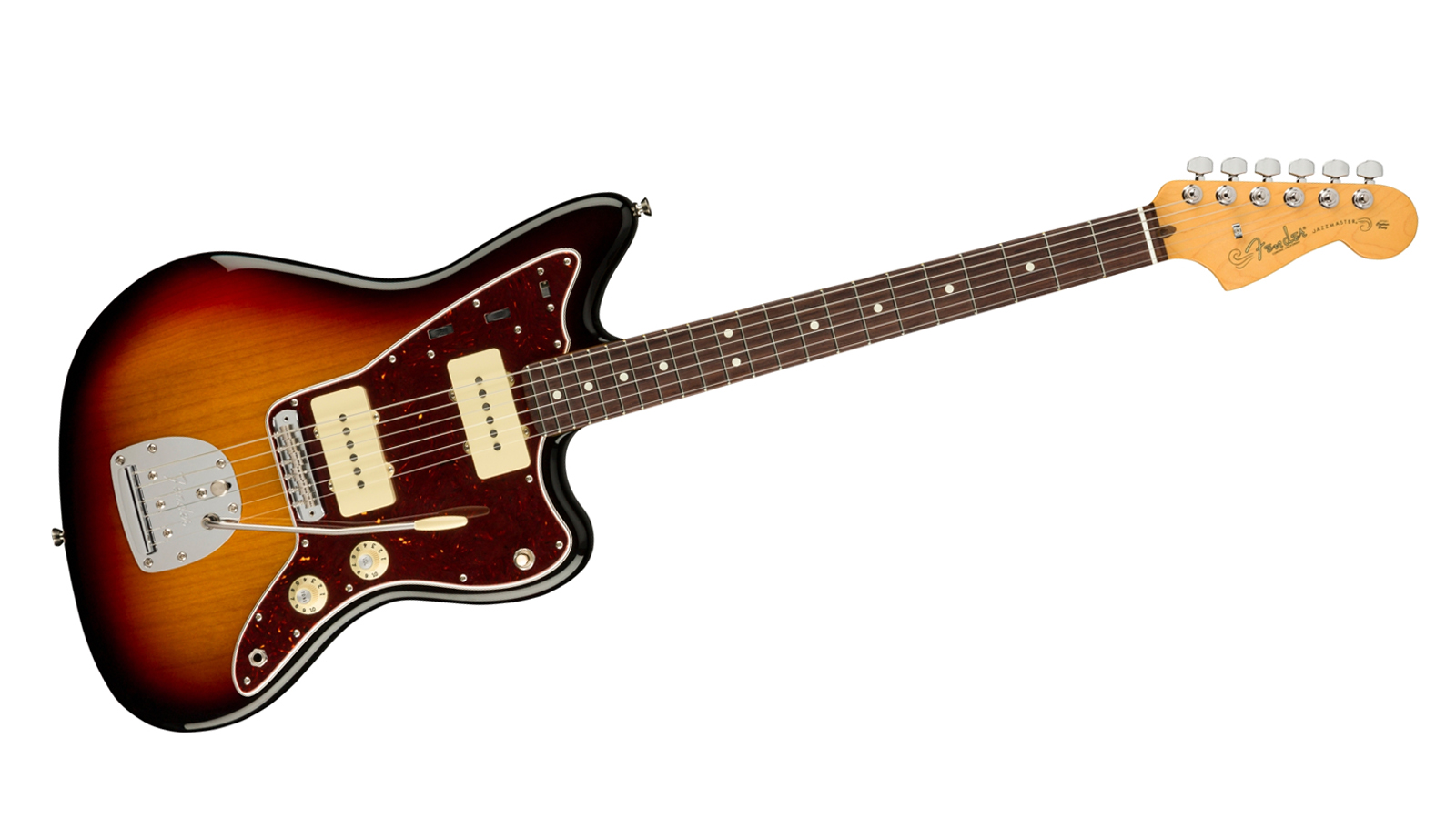
1. Fender American Pro II Jazzmaster
Our expert review:
Specifications
Reasons to buy
Reasons to avoid
Value: ★★★★☆
Playability: ★★★★★
Sound: ★★★★★
Overall: ★★★★½
While the Jazzmaster may live in the shadow of its siblings - the Telecaster and Stratocaster - it still has quite the cult following, and for good reason. The smoother tone is favored by players not taken by the spikey tone of the Tele or the spanky sound of the Strat. If that sounds like you, then the Fender American Pro II might be the best Jazzmaster available to you right now.
The Deep C neck - with its rolled edges - is a joy to play, while the sculpted neck heel solves the problem of the clunky nature of the original design. The V-Mod II single-coil pickups are a triumph, delivering the vintage tones you'd expect from this wonky axe, while the tap function on the bridge position gives you access to a modern throaty tone.
So, if you find yourself longing for the tone only a Jazzmaster can provide, then the American Pro II should be at the top of your list.
Best on a budget
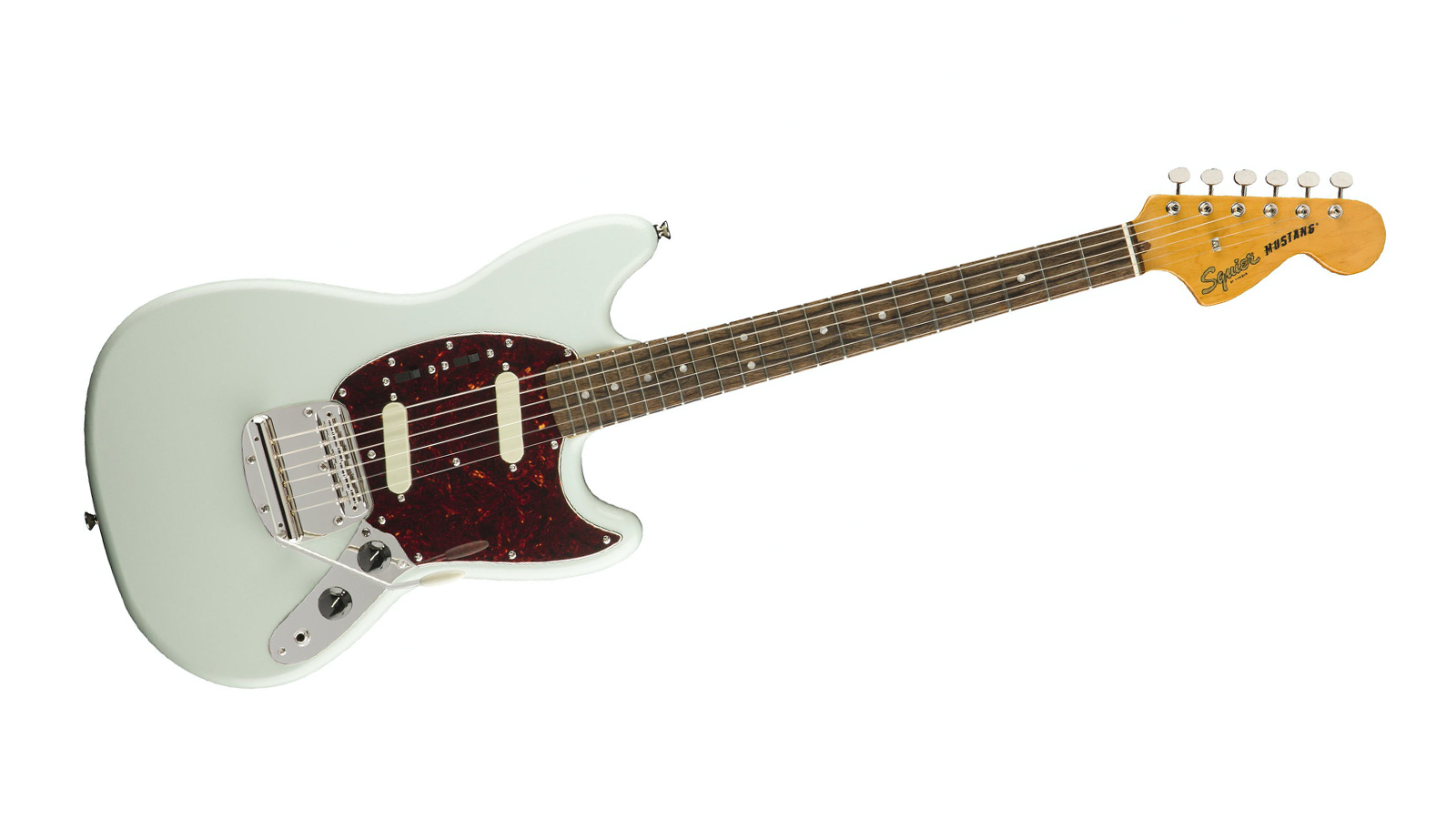
2. Squier Classic Vibe Mustang
Our expert review:
Specifications
Reasons to buy
Reasons to avoid
Value: ★★★★★
Playability: ★★★★☆
Sound: ★★★★☆
Overall: ★★★★☆
Galloping on to the scene in 1964, the Fender Mustang was designed as a student guitar - much like the Duo-Sonic and Musicmaster before it - but has since found favor with alt-rock and grunge fans chasing the electrifying sounds of the early 90s.
The Mustang's petite stature and light weight made it a fantastic guitar for young players starting out, and the single-coil pickups with switchable phase settings made it very versatile. However, a feature not discussed much on the Mustang is the rather unusual tremolo system. Shorter than a Jaguar or Jazzmaster trem, it offers a different feel and is perfect for adding a little bit of wobble to chords or lead lines.
If you are in the market for a Mustang, you should not overlook the classic vibe. Not only is it a fantastic beginner guitar, but it will also get you scarily close to the original 60s aesthetic and sound at a much more reasonable price, making it one of the best Squier guitars on the market.
Best for rock
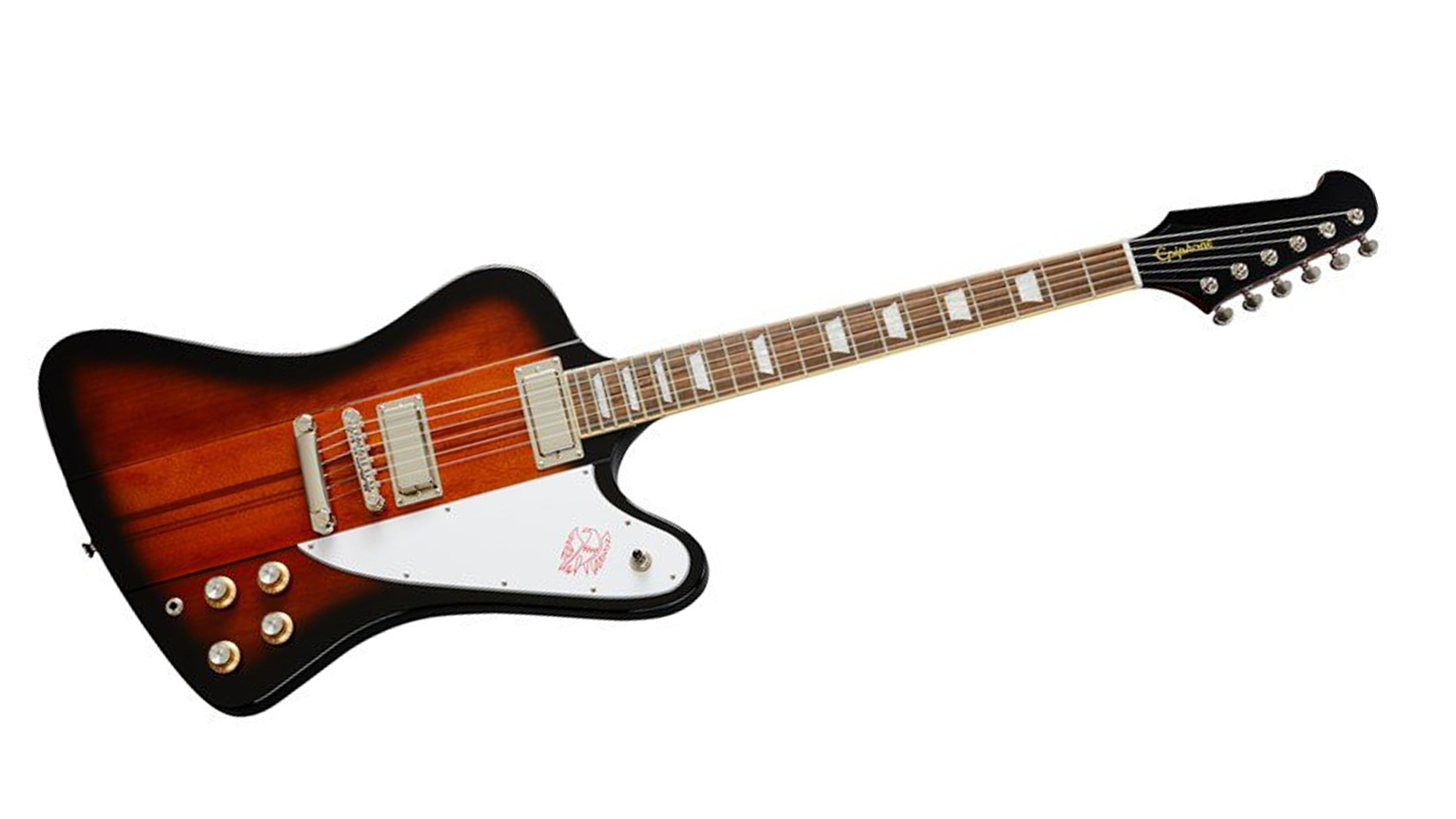
3. Epiphone Firebird
Our expert review:
Specifications
Reasons to buy
Reasons to avoid
Value: ★★★★½
Playability: ★★★★☆
Sound: ★★★★½
Overall: ★★★★½
Don't worry, it's not all Fenders on this list. Next up, we have the brainchild of Gibson and a retired motor designer, the Firebird. In a last-ditch effort to keep up with Fender in the early ‘60s, Gibson commissioned Ray Dietrich to take what he had learned from designing cars and apply it to the world of guitars. The result was a striking guitar of flowing lines and smooth curves, with a fully neck-through construction.
Now, we've chosen to go for the Epiphone Firebird for this list, as frankly, it offers incredible value for money. Just like the Gibson guitar on which this is based, the Epiphone features a 9-ply mahogany/walnut neck-through-body and reverse headstock, giving you the sustain this scorching guitar is known for.
The ProBucker FB720 pickups are sure to get you that unique 'bird tone. These mini-humbuckers have the top-end of a single-coil and the bottom-end and grunt of a standard humbucker. So if you fancy channeling your inner Johnny Winter or Allen Collins, then you might want to seriously consider a Firebird.
Best vintage spec
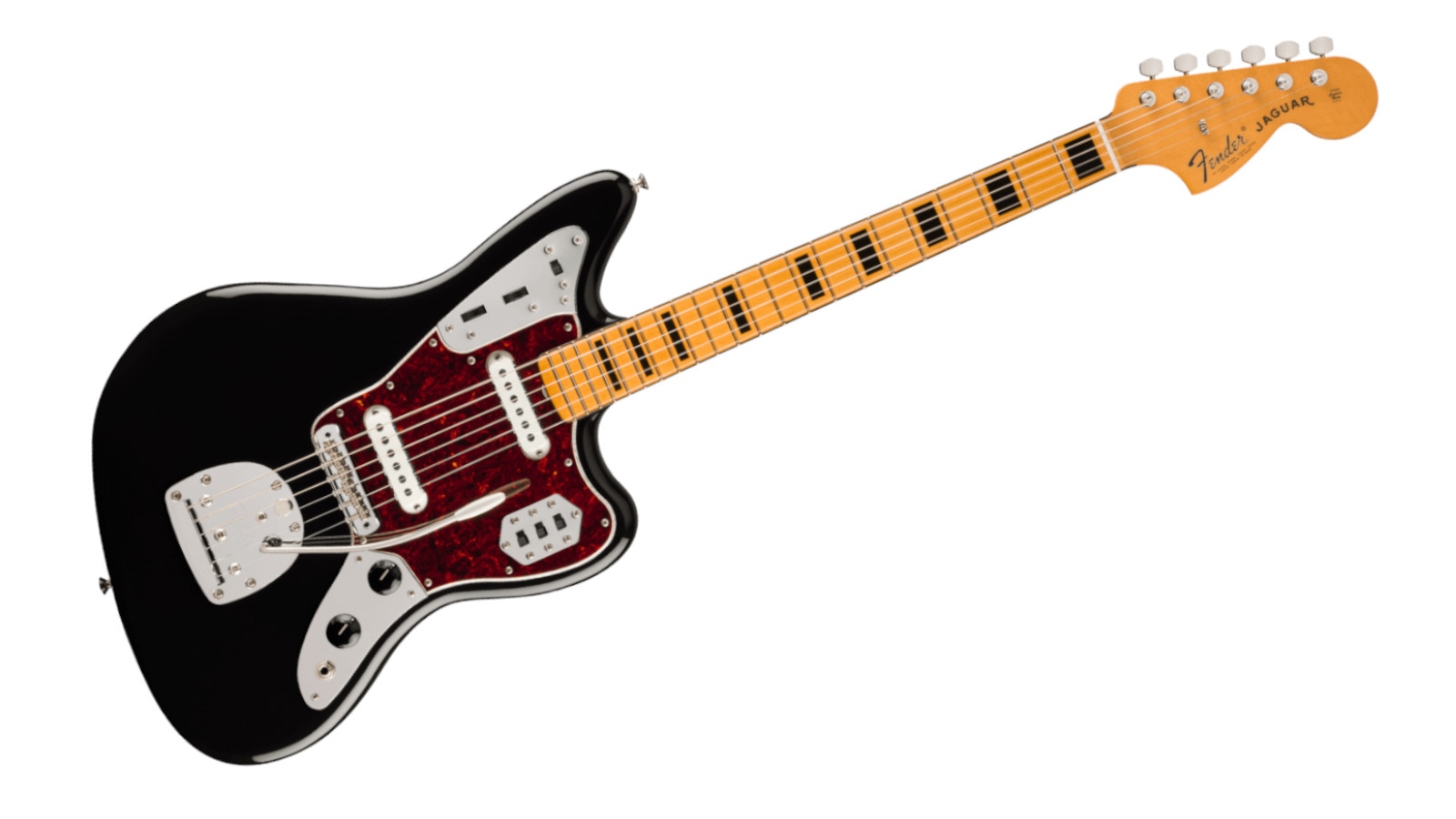
4. Fender Vintera II 70s Jaguar
Our expert review:
Specifications
Reasons to buy
Reasons to avoid
Value: ★★★★☆
Playability: ★★★★☆
Sound: ★★★★☆
Overall: ★★★★☆
Originally released in 1962, the Jaguar was Fender's top-of-the-line instrument – and one of Leo's favorite creations. Developed to appeal to the surf musicians of California, the Jaguar may look like the Jazzmaster above, but with differences in scale length, pickups and switches, it has an entirely different sonic identity.
The Vintera II 70s Jaguar gives you access to the classic feel and tone of a retro Jag but without the mammoth price tag. The Vintera II features a hugely playable 7.25" radius neck, while the shorter scale length of 24" provides a slinky feel, only found on short-scale guitars. The ’70s-inspired pickups do a fantastic job of creating the chime and bright attack you get from this era of Jags, and the rhythm and lead circuit make switching between tones a breeze.
We must say, we have been mega impressed with the full Vintera II range and the sheer amount on offer for the cash. So, if you are looking for a well-made, stylish-looking guitar that is more than capable of standing up to the demands of gigging, then look no further than the Fender Vintera II 70s Jaguar.
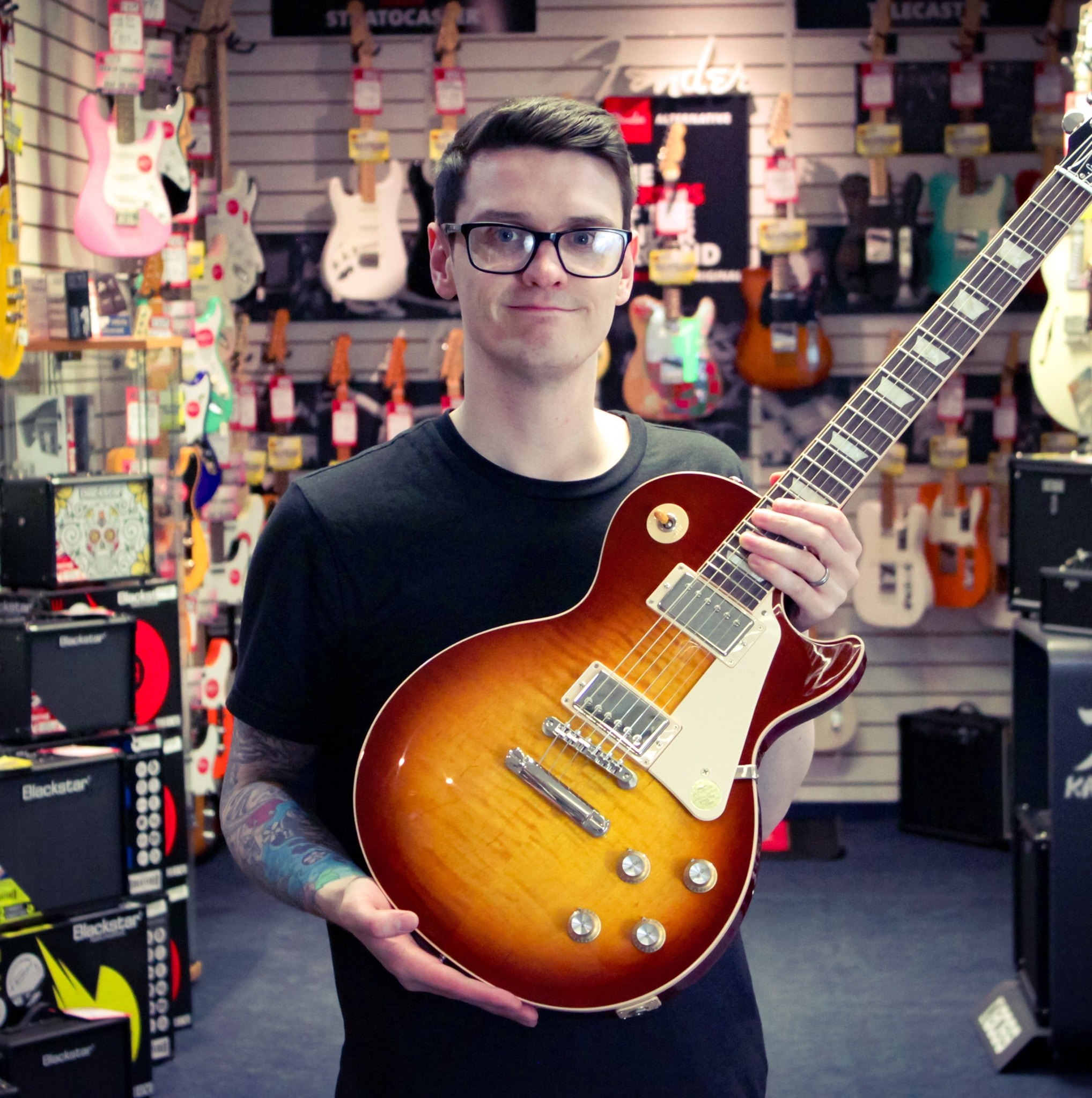
"The Jaguar perfectly evokes the feel and sound of the guitar from it draws its inspiration, while also benefiting from Fender’s modern building methods. From style to playability, build quality to tone, this ’70s offset offer players an affordable way to harness a little bit of vintage mojo without breaking the bank."
Read my full Fender Vintera II 70s Jaguar review
Best for style
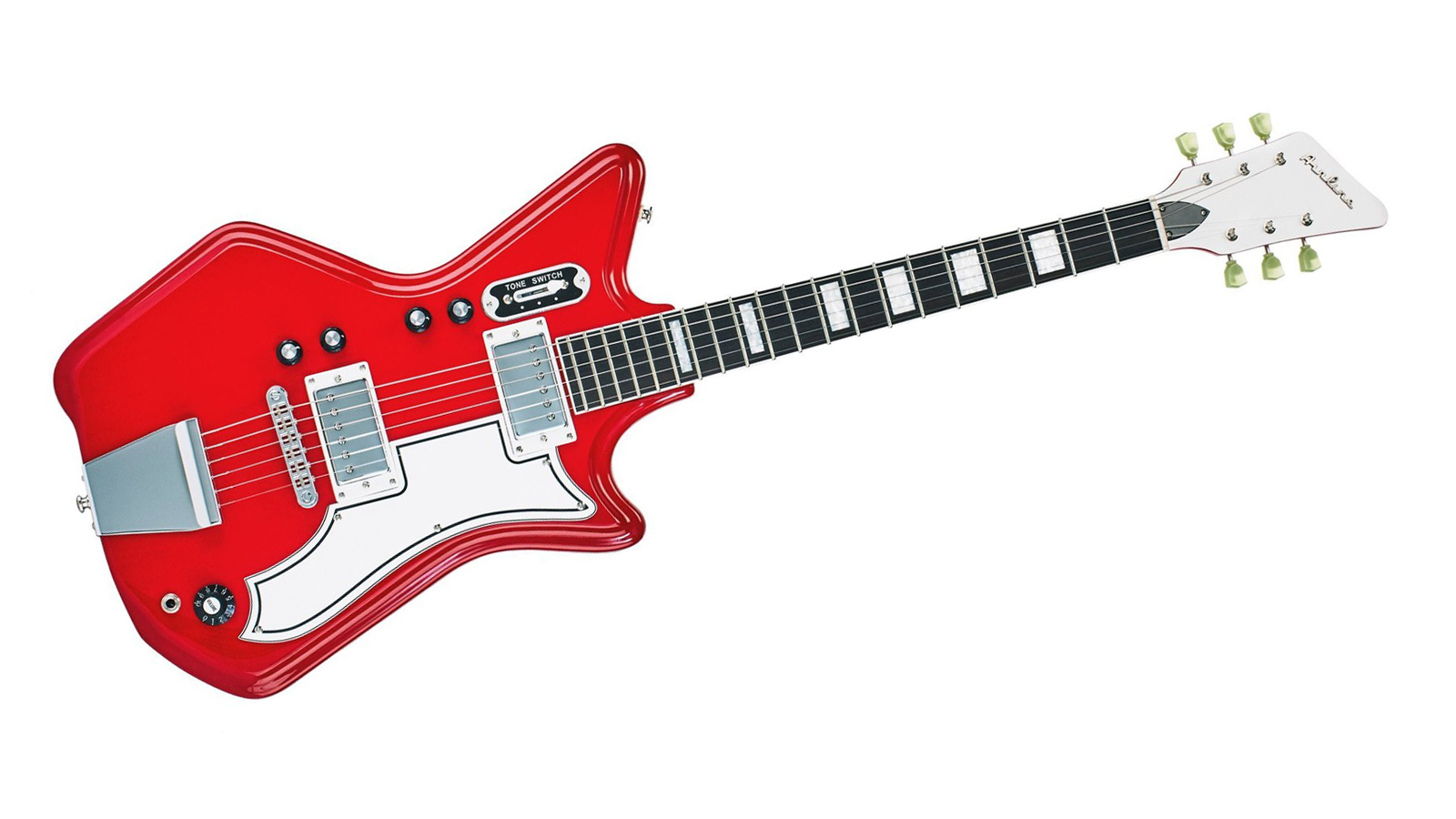
5. Eastwood Airline 59 2P
Our expert review:
Specifications
Reasons to buy
Reasons to avoid
Value: ★★★★☆
Playability: ★★★★☆
Sound: ★★★★☆
Overall: ★★★★☆
The Airline name was used on many different instruments produced by Valco and distributed by Montgomery Ward in the late 50s and early 60s, but today they are manufactured by Eastwood guitars. Airline is no stranger to offset models, and it was difficult to decide which guitar to feature here. We opted for the Airline 59 due to its connection to White Stripes frontman and crooked guitar fanatic Jack White.
The Eastwood reissue is far from a faithful recreation, but let's be fair, the originals had their issues. Gone is the delicate Res-O-Glas construction, in favor of a chambered mahogany body. Not only is this way more stable and hardwearing, it also increases sustain and ultimately leads to a better overall tone - without compromising on the look!
The bolt-on maple neck sports a modern C profile and will feel comfortable to the majority of players, while the medium jumbo frets should mean there are no issues when going for those large bends. Of course, this guitar is available in the crimson finish Jack White popularised, but it also comes in many other options - and if you ask us, the Satin Candy Green is pretty swish.
Best semi-hollow
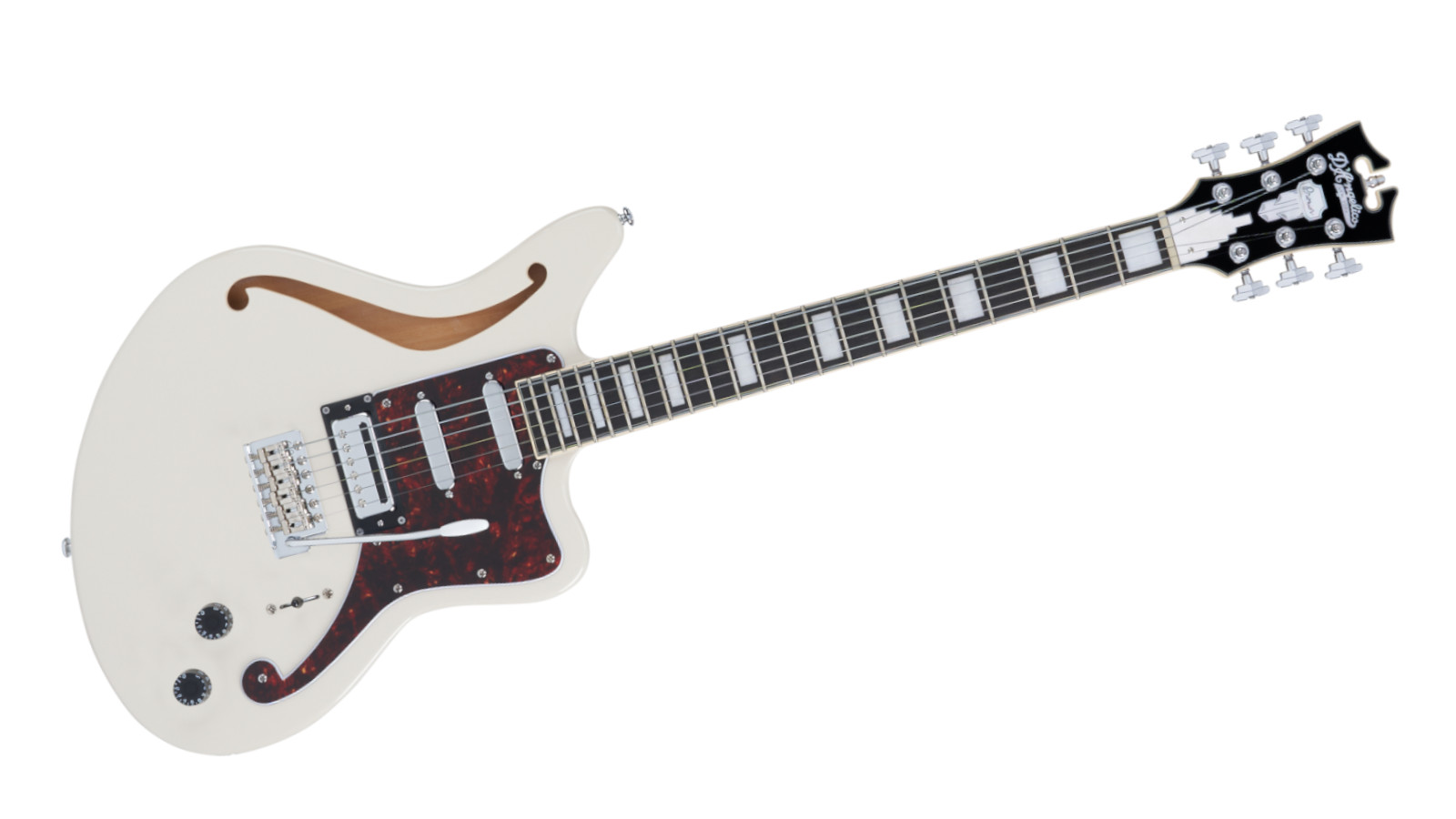
6. D'Angelico Premier Bedford SH
Our expert review:
Specifications
Reasons to buy
Reasons to avoid
Value: ★★★★☆
Playability: ★★★★½
Sound: ★★★★½
Overall: ★★★★½
Okay, so Jazz legends D'Angelico might not be your first thought when it comes to offset guitars. Still, the Bedford should most definitely be on your radar. The wide, semi-hollow flat body is surprisingly comfortable, and the sweeping pickguard adds a visual flair we absolutely love.
The secret weapon of the Bedford is undoubtedly the neck. While the slim profile will feel familiar to players of bolt-on maple necks, the insanely smooth satin finish means this is a joy to play. With Duncan Designed pickups and a five-way switch, the Bedford SH delivers everything from high-gain rock tones to smooth cleans – and plenty in between.
So if you are looking for something a little different, with a neck that practically plays itself, then you should certainly consider the D'Angelico Premier Bedford SH. That said, we found the semi-hollow design a little heavier than expected.

"A guitar that proves how potent the unusual single-coil and mini-humbucker combination can be for blues, rock, jazz and all spaces in between."
Read my full D’Angelico Premier Bedford SH review
Best premium
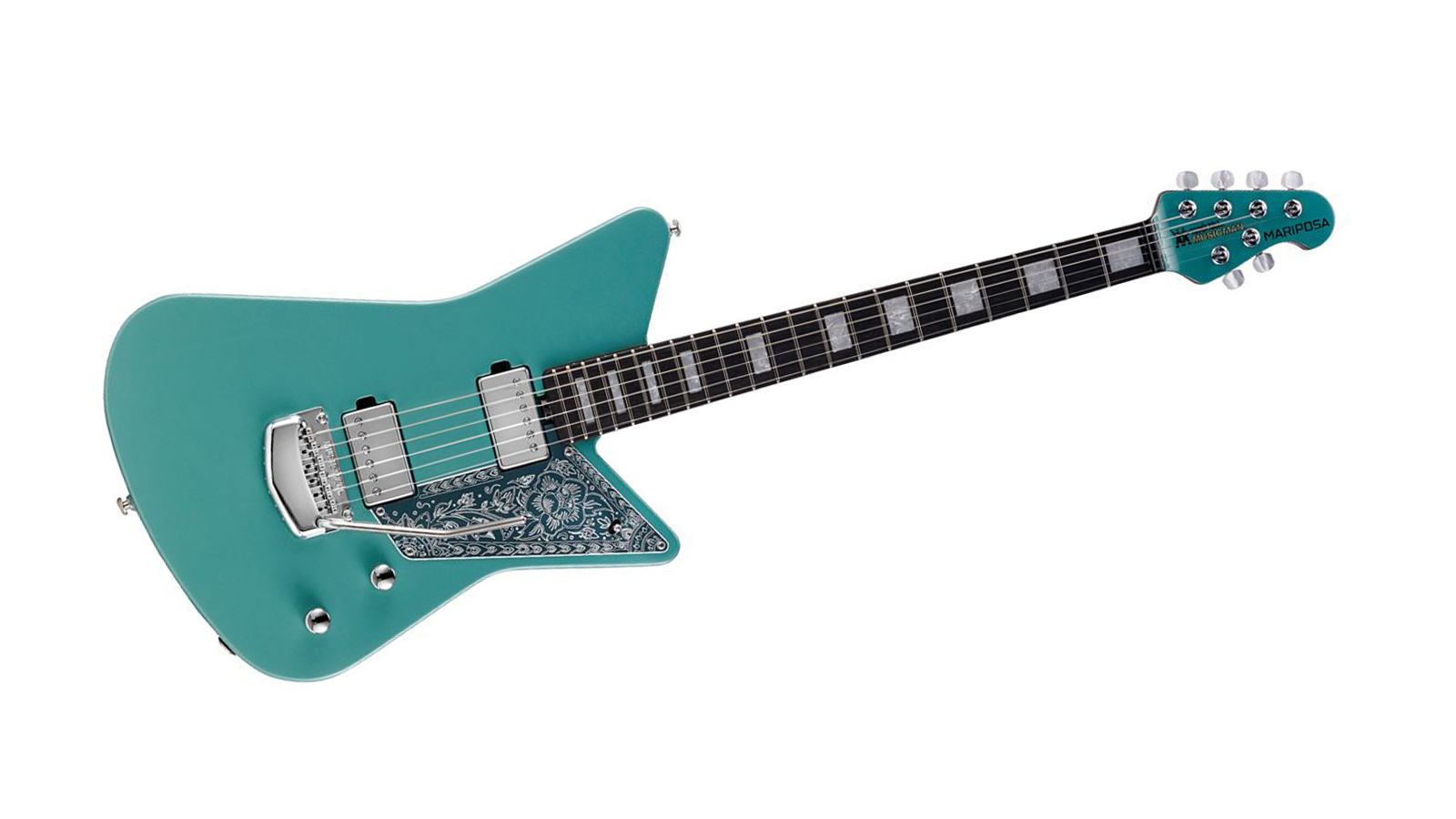
7. Ernie Ball Music Man Mariposa
Our expert review:
Specifications
Reasons to buy
Reasons to avoid
Value: ★★★★☆
Playability: ★★★★½
Sound: ★★★★½
Overall: ★★★★½
Let's just take a minute to appreciate how gorgeous the Mariposa is. Its sharp angles are juxtaposed with an ornate floral pickguard, resulting in a truly distinctive-looking instrument. Coming from the mind of Mars Volta and At The Drive-In axeman, Omar Rodríguez-López the Mariposa sees the prog/post-hardcore guitarist step away from Ibanez and join forces with Music Man.
This new signature guitar features a lightweight okoume body with a perfectly smooth roasted maple neck, ebony fingerboard, and block inlays. The custom humbuckers at the heart of this guitar are designed with high gain in mind and are perfect for recreating the chaotic riffs Omar is known for.
This is all capped off with a beautiful laser-etched pickguard, which changes depending on which of the four finish options you choose. Available right now are Sahara Sunset, Galaxy Pearl, Imperial White, and our favorite Dorado Green.

"An eye-catching silhouette, immaculate finish and great feel make Omar Rodríquez-López's signature model easy to love."
Read my full Ernie Ball Music Man Mariposa review
Best for beginners
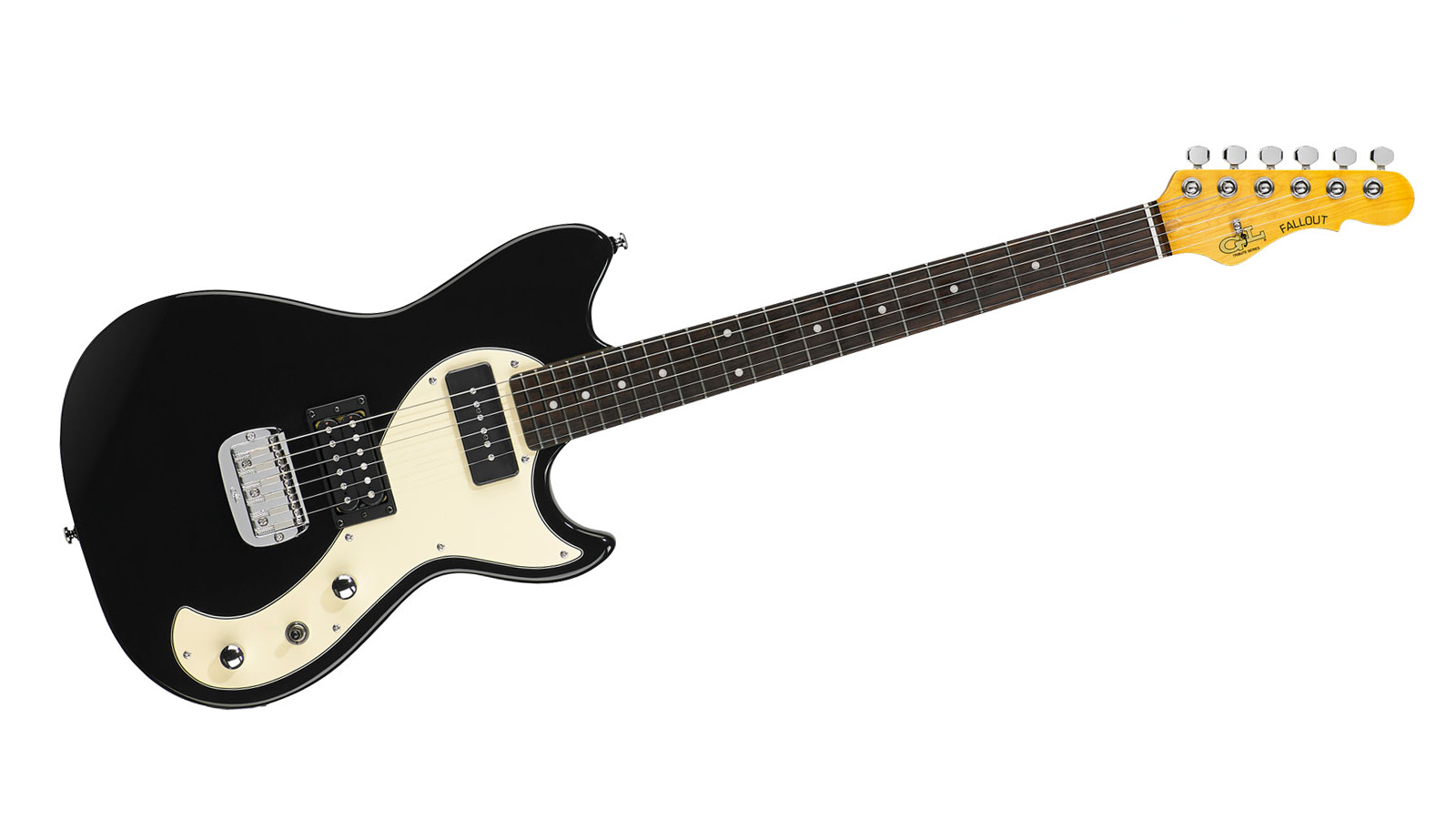
8. G&L Tribute Series Fallout
Our expert review:
Specifications
Reasons to buy
Reasons to avoid
Value: ★★★★★
Playability: ★★★★☆
Sound: ★★★★☆
Overall: ★★★★☆
This is yet another offset guitar with Leo Fender's fingerprints all over it - albeit with some modifications. The Fallout takes inspiration from the G&L SC-2, building on its simplistic approach and turning it into a rock machine.
It may share the body of the SC-2 - designed by Leo Fender in the early 80s - but the guitar has been reimagined for today's modern player. The MFD single-coil pickups have been swapped out for the Paul Gagon designed humbucker in the bridge and P90 pickup in the neck position. This makes the Fallout a tonal powerhouse, perfect for high-octane riffage.
If you're looking for a comfortable, slim-bodied offset with bags of tone, then the G&L Tribute Series Fallout might just be the best option for you.

"With its slim body shape and distinctive voice, the G&L Tribute Fallout is a great choice for guitarists looking for an affordable player’s instrument with tons of personality."
Read my full G&L Tribute Series Fallout review
Best with vibrato
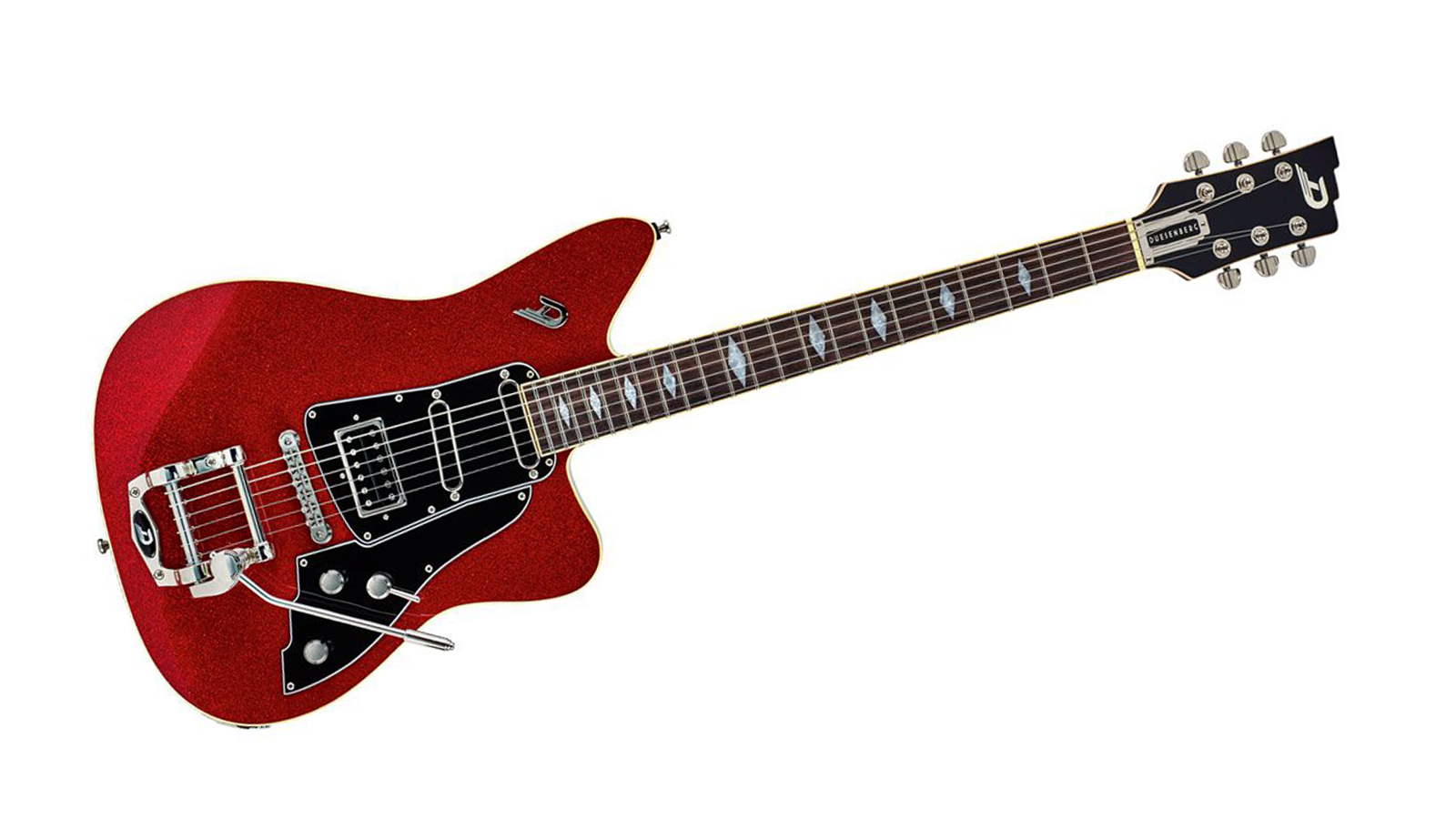
9. Duesenberg Paloma
Our expert review:
Specifications
Reasons to buy
Reasons to avoid
Value: ★★★★☆
Playability: ★★★★½
Sound: ★★★★★
Overall: ★★★★☆
When you initially think of Duesenberg, your mind may go straight to the ever-popular Starplayer, but the Paloma model deserves your attention - especially if you are a fan of offset guitars.
The fabulously wonky body is constructed from alder, much like the offsets of the past, while the Diamond Deluxe Tremola and HSS pickup configuration bring something entirely new to the table. The incredible GrandVintage humbucker, as the name suggests, delivers the warm, retro humbucker tones you know and love, and the specially designed single-coils would easily go up against the greatest Strat.
Not only is the Duesenberg Paloma effortlessly cool, but it also has the goods to back it up. It's a joy to play, insanely versatile, and built to last. There is a reason we had to include it among the best offsets.
Best for versatility
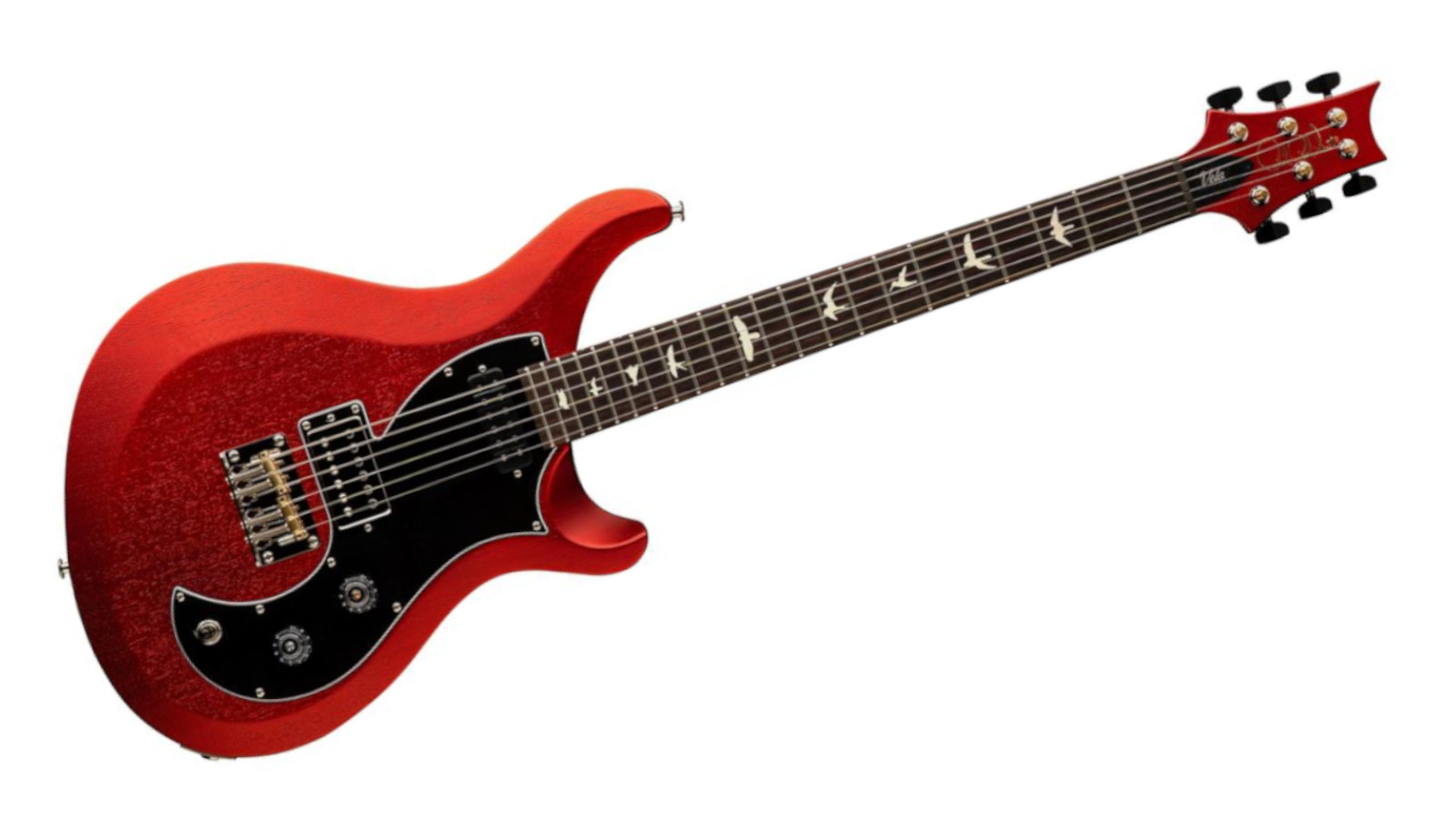
10. PRS S2 Vela
Our expert review:
Specifications
Reasons to buy
Reasons to avoid
Value: ★★★★½
Playability: ★★★★½
Sound: ★★★★½
Overall: ★★★★½
The S2 range for PRS offers players seeking the Maryland company's craftsmanship but in a stripped-down, more accessible format. While the S2 range features its fair share of familiar shapes and styles, the one that caught our attention is the Vela - a lopsided take on the standard.
The Vela may be missing the bells and whistles of the Custom 24, but that doesn't stop it from delivering the tone you'd expect from Paul Reed Smith. The full mahogany body offers up a copious amount of sustain. At the same time, the PRS plate-style bridge - with brass saddles - gives an extra level of attack and added brightness.
This might be the first venture into the weird world of offsets for PRS, but let's hope it isn't the last. The Vela certainly offers Paul Reed Smith fans a different take on the tried and tested formula they are famous for.

"With its versatile variety of tones, first-class craftsmanship and construction, and incredibly comfortable playability, the PRS S2 Vela is a new classic that will be embraced by discriminating players looking for something a little different."
Read our full PRS S2 Vela review
Best 12-string
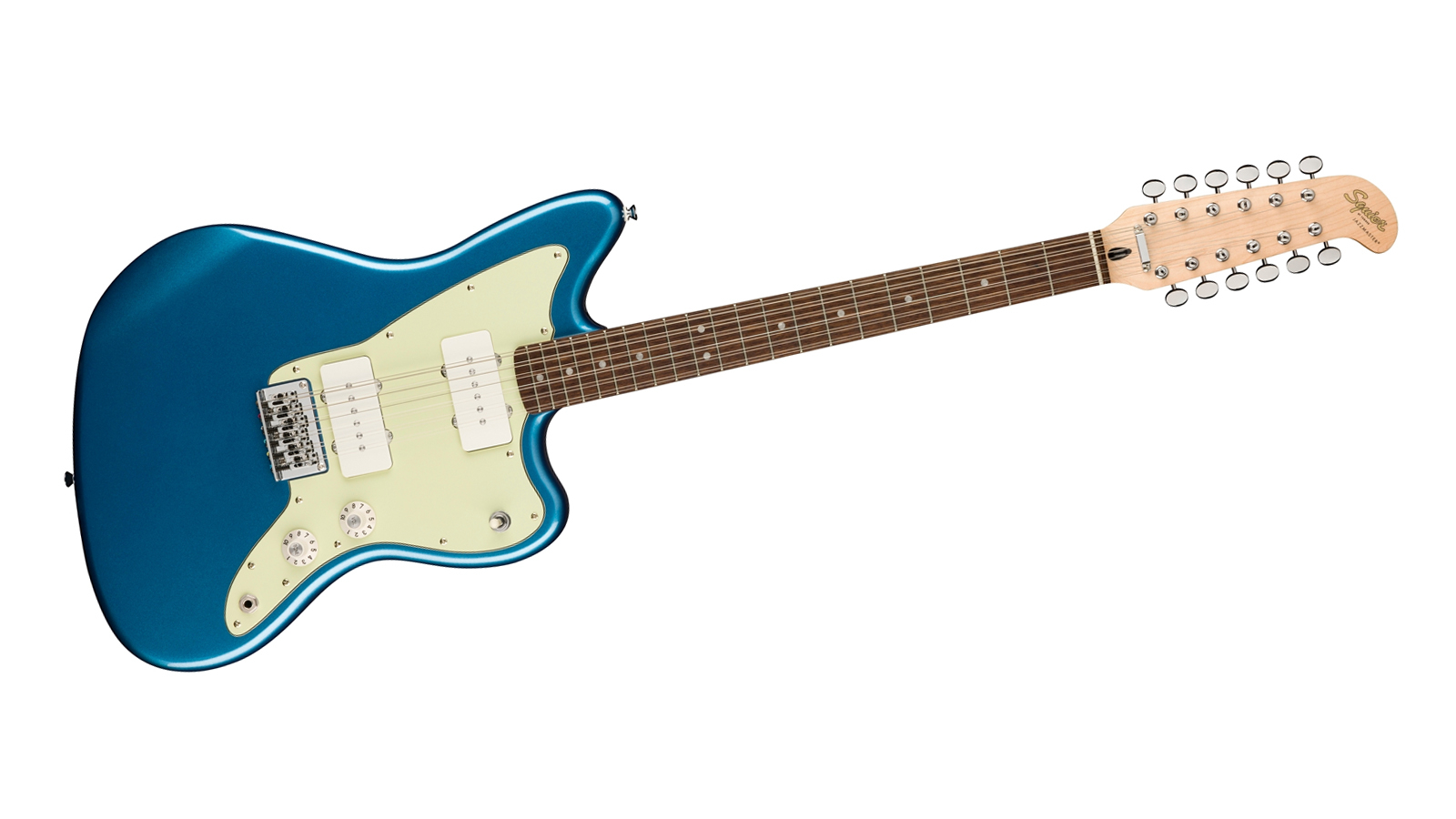
11. Squier Paranormal Jazzmaster XII
Our expert review:
Specifications
Reasons to buy
Reasons to avoid
Value: ★★★★½
Playability: ★★★★☆
Sound: ★★★★☆
Overall: ★★★★☆
The new Paranormal Jazzmaster XII proves Squier is currently at the top of their game - producing some of the most creative and exciting guitars on the market right now.
While sitting down with the 12-string Jazzmaster for the first time, our first thought goes straight to how comfortable the neck is, despite the extra girth to accommodate the additional strings. In our tests, we found this humble guitar to be exceptionally pleasing to play, making it ideal as an entry point into 12-string guitars.
This Squier guitar's tonal heart is a pair of Fender-Designed alnico single-coil Jazzmaster pickups, which sound bright, sharp and very articulate. Rounding off the retro-inspired 12-string is the "hockey stick" headstock, which, in our opinion, takes the guitar's design to the next level.
Brief history
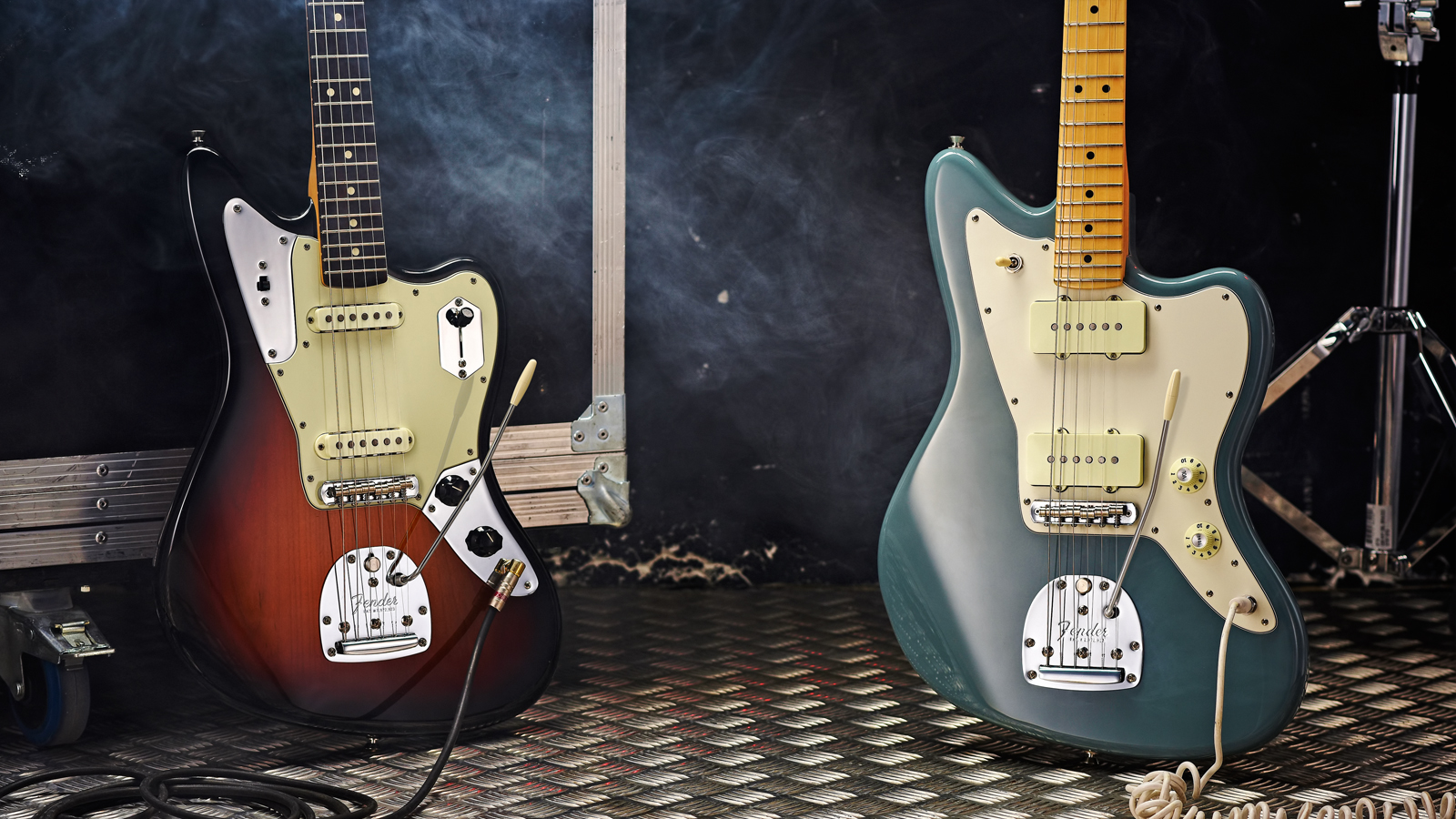
Looking back, it seems like a sure thing that offset guitars would catch on, but in reality, the odds were stacked against them from the beginning.
We can trace the roots of the offset back to the introduction of the Fender Duo-Sonic, in 1956. Unfortunately, this student model would receive very little fanfare, and it would take two years before the Californian guitar giant would release arguably the most famous of the offsets, the Jazzmaster - a guitar that was so ahead of its time the jazz cats had no idea what to do with it.
Dwindling sales in the mid-70s would threaten the survival of the offset forefathers - Jazzmaster, Jaguar, and Mustang - and it would take a mammoth shift in the musical landscape to renew interest in these designs.
Although these wonky guitars would ultimately be betrayed by the very musicians they were designed for, the offset would go on to be embraced by a daring new breed of guitar player. This new strain of musician was fueled by uniqueness, creating a musical shockwave still felt today.
FAQs
What is an offset guitar?
The term offset is way broader than it might first seem. Everything from the Fender Jaguar to the Duesenberg Paloma, G&L Fallout, and Airline 59 share the attributes associated with the term offset. Simply put, an offset guitar is an instrument with an asymmetrical waist. Generally speaking, offset guitars look like they lean to one side due to the unbalanced nature of their design.
Despite the wonky look of these guitars, they are actually very comfortable to play. The grandfather of the offset - the Jazzmaster - was initially designed to be more comfortable to play while seated, something sought after by the jazz players of the time.
Why are offset guitars so popular?
When it comes to electric guitars, few designs command attention quite like offsets. Their unique silhouette sets them apart from the more conventional shapes like Strats and Les Pauls, offering a visual allure that is hard to ignore. The fluid contours and asymmetrical features of an offset guitar make it not just an instrument, but a statement piece that resonates with creativity.
Beyond their striking appearance, offset guitars provide a level of comfort that enhances the playing experience. The cleverly designed offset waist shifts the body shape, allowing your picking arm to move freely without obstruction. This thoughtful design feature means you can strum passionately without the frustration of a bulky upper bout getting in your way.
But the benefits don’t stop there. With a lower horn that is less pronounced, accessing higher frets becomes a breeze, making it easier for guitarists to explore the full range of their instrument. Whether you're nailing intricate solos or fretting those soaring melodies, you’ll find that an offset allows for smoother navigation across the neck.
Another advantage of these unique guitars is their tendency to tilt slightly when played standing up. This natural angle makes it effortless to grab power chords, delivering punchy riffs with confidence. So, aside from their stunning aesthetics and ergonomic design, offset guitars can truly elevate your performance, blending style with functionality in a way few other designs can.
How to choose the best offset for you
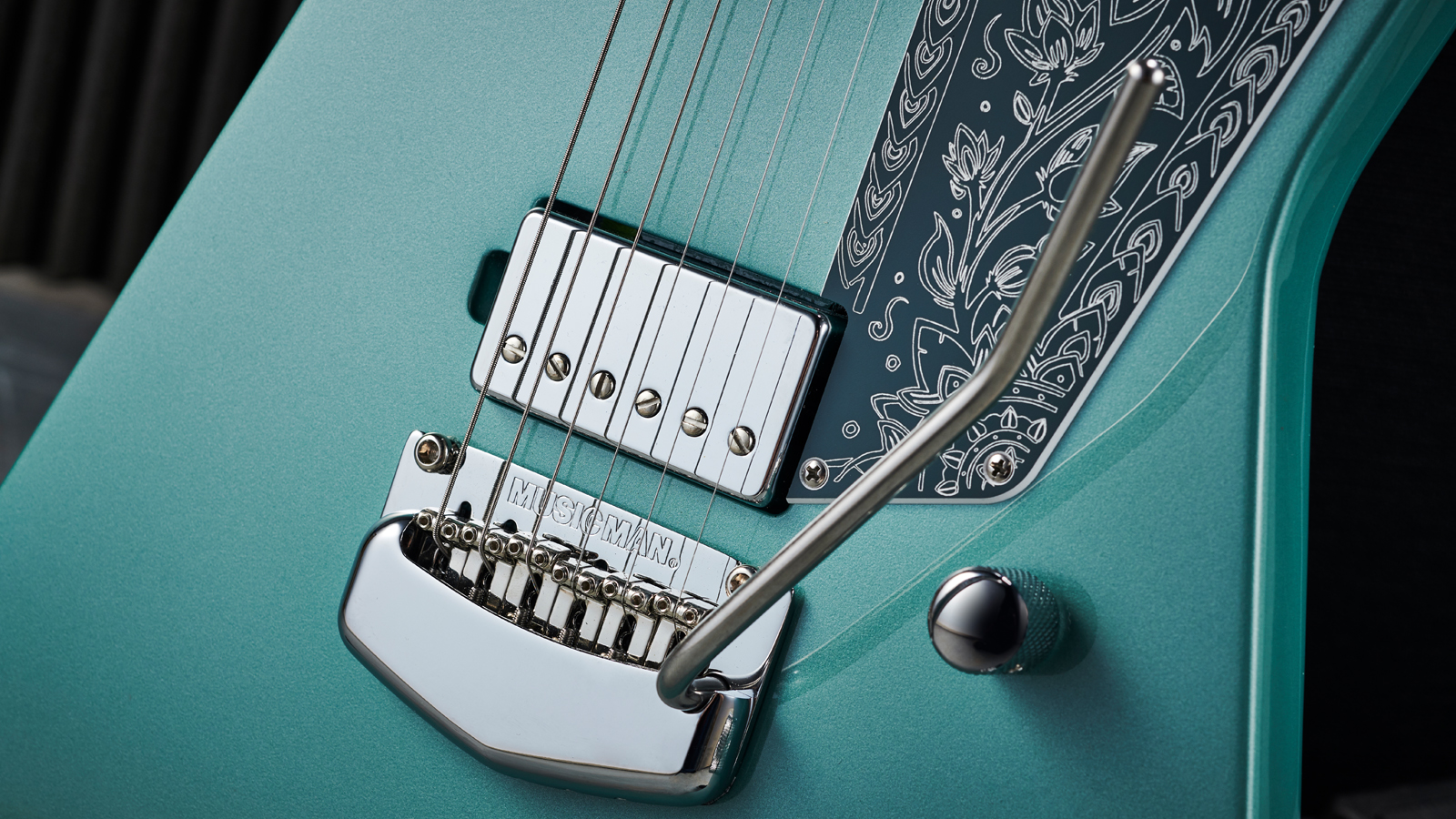
As we said above, the world of offset guitars is a rather vast one, and it can get overwhelming, but there are a few things to keep in mind when choosing the best offset guitar for you.
Scale length
The scale length on offset instruments can vary wildly from model to model, so it's worth keeping it in mind while choosing your next guitar. For fans of the "standard" scale length of Fender style instruments, you may want to stick to the likes of the Jazzmaster, Airline, and Paloma, while players seeking a shorter instrument may want to check out the Jaguar and Mustang.
Pickups
Like choosing any electric guitar, it's essential to know what sound you are looking to get out of your new axe. Therefore it’s worth putting a lot of thought into which pickups are right for you. Looking to bring the house down with bone-crushing riffs? Then make sure you have at least one humbucker. 60s twang, more your thing? Then the unique Jaguar pickup will get you there. Some models like the Fallout, Bedford and Paloma offer a selection of pickups within one guitar.
Bridge
Lastly, it's worth thinking about whether or not you need a tremolo - or vibrato as it should be known. Most vintage-style offsets will come with one attached, and it can result in some spectacular sounds. That said, it can cause some problems, mainly in the tuning department. So, if you don't see yourself utilizing the vibrato, then best to go for a modern offset such as the G&L Fallout.
How we choose products
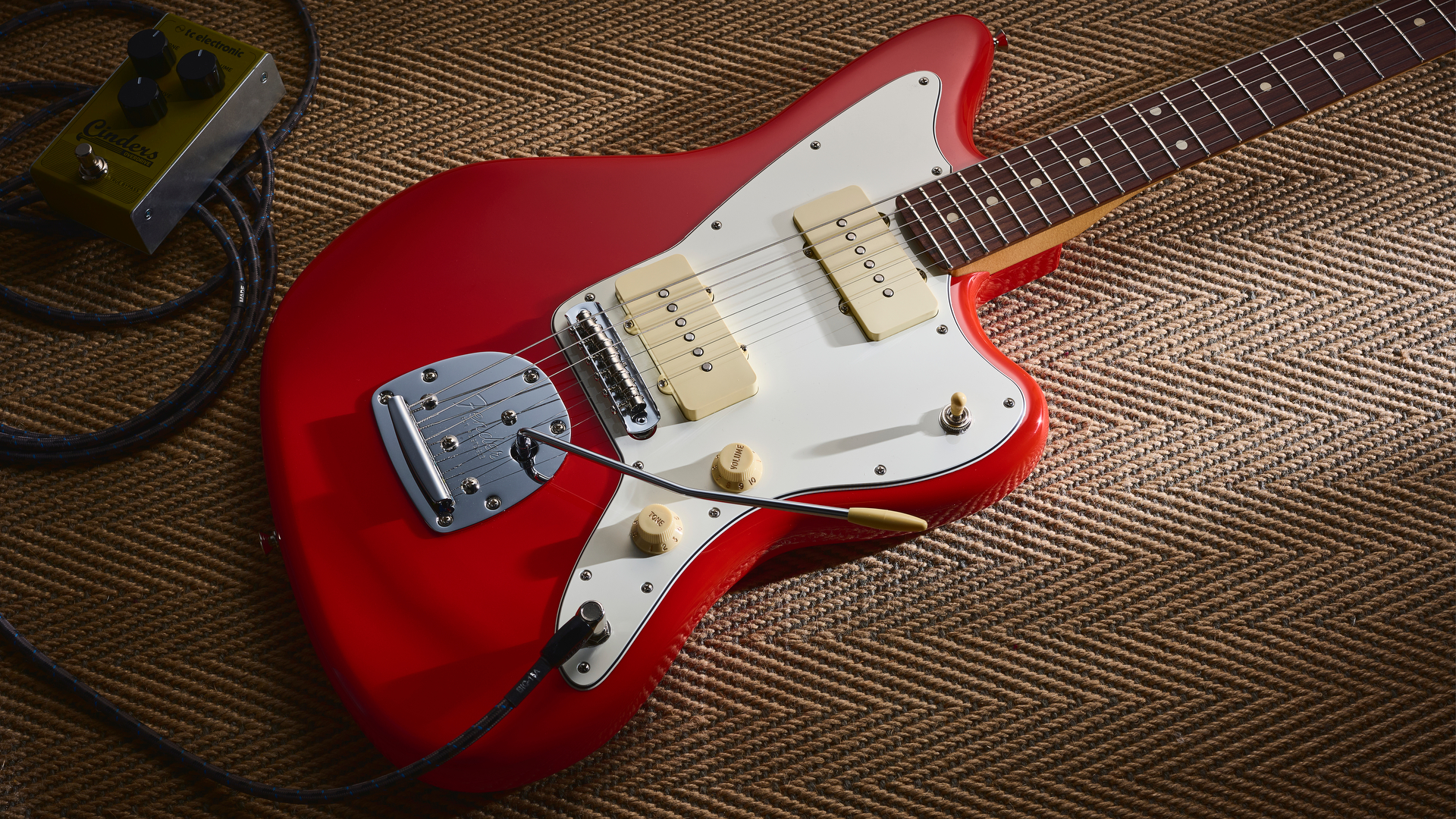
Here at Guitar World, we are experts in our field, with many years of playing and product testing between us. We live and breathe everything guitar and bass-related, and we draw on this knowledge and experience of using products in live, recording and rehearsal scenarios when selecting the products for our guides.
When choosing what we believe to be the best offset guitars available right now, we combine our hands-on experience, user reviews and testimonies and engage in lengthy discussions with our editorial colleagues to reach a consensus about the top products in any given category.
First and foremost, we are guitarists, and we want other players to find the right product for them. So we take into careful consideration everything from budget to feature set, ease of use and durability to come up with a list of what we can safely say are the best offset guitars on the market right now.
Read more about our rating system, how we choose the gear we feature, and exactly how we test each product.
Why trust us?
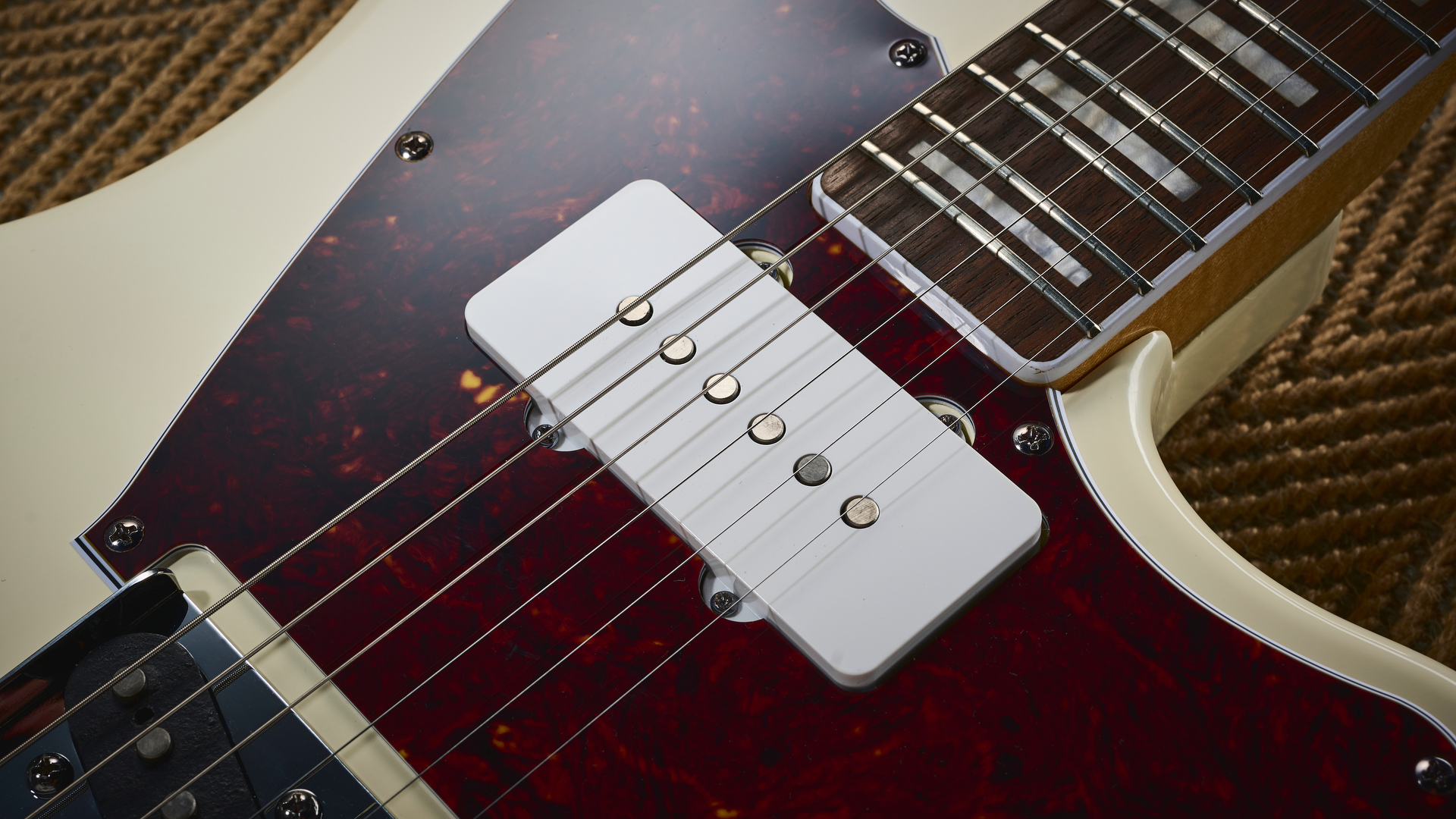
☑️ A global audience of 3.8 million guitarists monthly
☑️ 1,200+ reviews on GuitarWorld.com
☑️ 30+ years of product testing at Guitar World
Guitar World boasts over 44 years of expertise and stands as the ultimate authority on all things related to guitars. The magazine and website feature expertly written gear round-ups and top-quality, authoritative reviews penned by a team of highly experienced industry professionals.
Guitar World's inaugural print issue hit the shelves in July 1980, and ever since, it has been captivating players and enthusiasts with engaging lessons, insightful interviews with the biggest guitar heroes, and priceless buying advice for newbie players.
Furthermore, GuitarWorld.com continues this legacy online and serves as the hub of the world's foremost authorities on guitar playing. The site not only hosts content from Guitar World but also showcases articles from respected publications such as Guitarist, Total Guitar, Guitar Techniques, and Bass Player. With a reach extending to 3.8 million players each month, GuitarWorld.com is a go-to destination for guitar fanatics globally.
Related buying guides
You can trust Guitar World
- Blow the budget with the best high-end electric guitars
- Jazzmaster vs Jaguar: What's the difference
All the latest guitar news, interviews, lessons, reviews, deals and more, direct to your inbox!

Daryl is a Senior Deals Writer at Guitar World, where he creates and maintains our 200+ buyer's guides, finds the best deals on guitar products, and tests the latest gear. His reviews have been featured in prominent publications like Total Guitar, Guitarist, Future Music magazine, and MusicRadar.com.
During his career, he has been lucky enough to talk to many of his musical heroes, having interviewed Slash and members of Sum 41, Foo Fighters, The Offspring, Thrice, and more. In a past life, Daryl worked in music retail. For a little under a decade, he advised everyone from absolute beginners to seasoned pros on the right gear for their needs.
Daryl is a fully qualified sound engineer, holding a first-class Bachelor's degree in Creative Sound Production from the University of Abertay.
